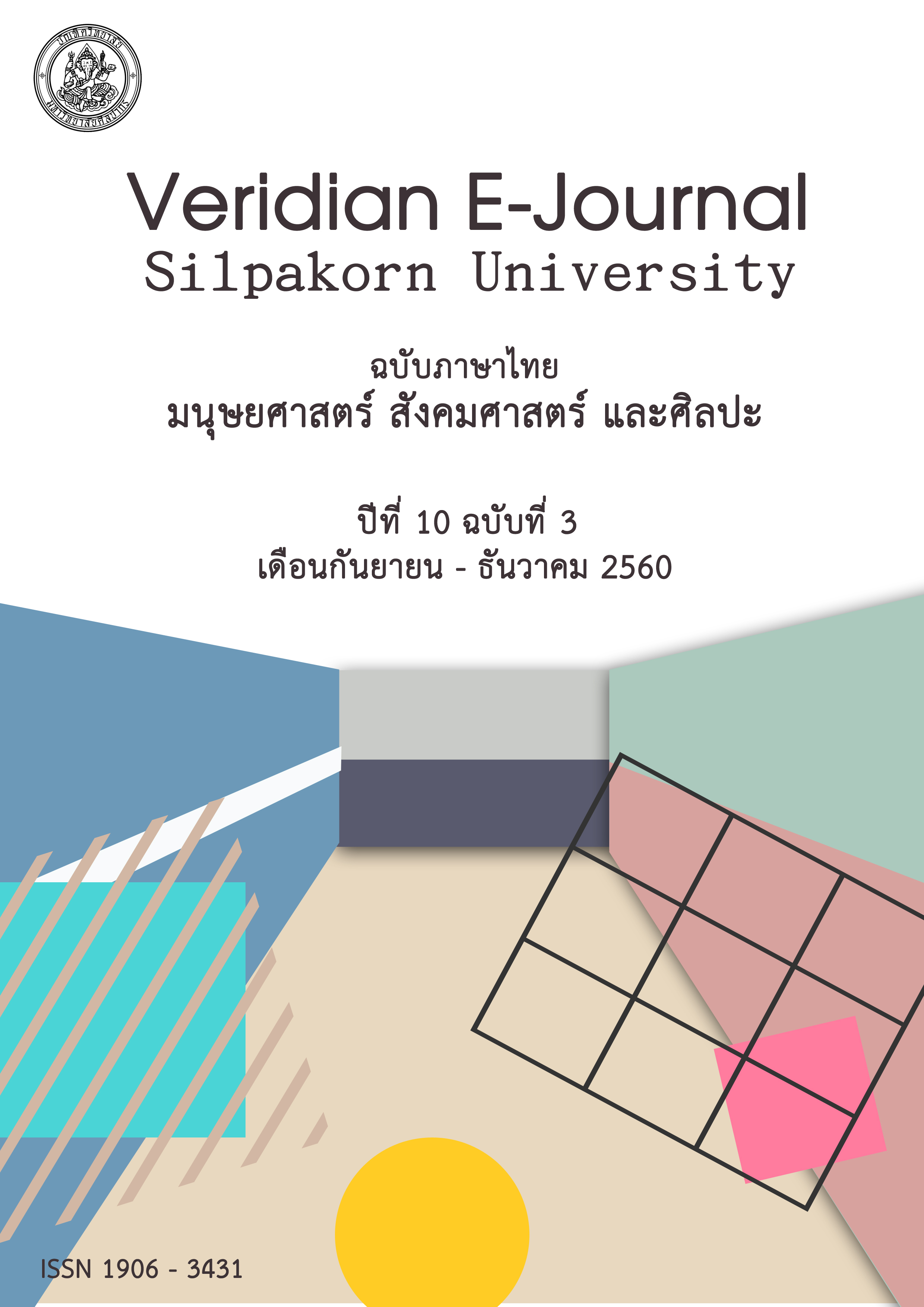ผลการสอนตามกรอบมาตรฐานคุณวุฒิระดับอุดมศึกษาด้วยกระบวนการศึกษาชั้นเรียน โดยใช้วิจัยเป็นฐาน สำหรับนักศึกษา สาขาวิชาสังคมศึกษา ชั้นปีที่ 1 ในรายวิชา 234 110 ครูกับสังคมอีสาน
Main Article Content
Abstract
การวิจัยนี้ มีวัตถุประสงค์เพื่อศึกษาผลการสอนตามกรอบ TQF และความพึงพอใจ ตามกระบวนการศึกษาชั้นเรียน โดยใช้วิจัยเป็นฐาน สำหรับนักศึกษาสาขาวิชาสังคมศึกษา คณะศึกษาศาสตร์ มหาวิทยาลัยขอนแก่น ชั้นปีที่ 1 ที่ลงทะเบียนเรียนในรายวิชา 234 110 ครูกับสังคมอีสาน จำนวน 35 คน ผู้วิจัยใช้ขั้นตอนการสอนโดยใช้วิจัยเป็นฐาน คือ ขั้นเลือกปัญหา ขั้นวิเคราะห์ปัญหา ขั้นเลือกวิธีการวิจัย ขั้นรวบรวมและตีความหมายของข้อมูล และขั้นสรุปผลการวิจัย มาใช้เป็นแนวทางเพื่อพัฒนาผลการเรียนรู้ตามกรอบ TQF ทั้ง 5 ด้าน โดยประเมินจากเครื่องมือที่ผู้วิจัยสร้างขึ้น 5 เครื่องมือที่ผ่านการตรวจสอบคุณภาพของเครื่องมือจากผู้เชี่ยวชาญมาแล้ว ได้แก่ ด้านความรู้ประเมินจากแบบทดสอบ แบ่งเป็น 2 ส่วนคือ แบบปรนัยชนิดเติมคำและปรนัย 4 ตัวเลือก ด้านทักษะทางปัญญาจากการประเมินคุณภาพของงานวิจัยตามเกณฑ์ที่ผู้วิจัยสร้างขึ้น ด้านความสัมพันธ์ระหว่างบุคคลและความรับผิดชอบการสังเกตกระบวนการทำงานตามเกณฑ์การประเมินที่ผู้วิจัยสร้างขึ้น ด้านทักษะในการวิเคราะห์เชิงตัวเลข การสื่อสาร และเทคโนโลยีสารสนเทศ ประเมินจากการสังเกตการนำเสนอผลงานตามเกณฑ์การประเมินที่ผู้วิจัยสร้างขึ้น ด้านคุณธรรม และจริยธรรม ประเมินจากเกณฑ์คุณภาพของงานวิจัยที่ผู้วิจัยสร้างขึ้น วิเคราะห์ข้อมูลทั้งเชิงปริมาณและเชิงคุณภาพ
This study has objectives were to investigate the effect of teaching instructions based on TQF for higher education that employed lesson study by research-based learning with first-year social study students faculty of education Khon Kaen university which registered in “Teacher and E-sarn society: 234 110 course”. It was found that teaching procedure of research-based learning consist of select a problem, diagnose problems, research Methodology, collect and interpret information and the results of the research were used as a guideline for the development of learning outcomes based on the TQF framework in five aspects, the tools had been developed by the researcher which were quality checked by the expert. Knowledge aspect assess from the test which was divided into two parts, completion and four multiple. Cognitive skills aspact assess from the quality of the research, based on the criteria of the researcher. Interpersonal relationship and responsibilities aspact were assess by the observation, based on the criteria of the researcher. Skills in numerical analysis, communication and technology information aspact were evaluated by the observation of the presentations, base on the criteria of the researcher. Moral and ethical aspact were evaluatied by the quality of the research, based on the criteria of the researcher. The data analyzed by quantitative and qualitative.
The research findings are as follows:
- The researcher used teaching processes found in research-based learning. The outcome were teaching guidelines for improving the effect of teaching instructions based on TQF for higher education, derived from five-aspect assessment standard in which the researcher developed specifically. Five criteria were as following
- Knowledge aspect, consisted of 1) students’ knowledge of research process and the ability to conduct the research methodically and correctly, 2) knowledge of the content of subject 234 110 “Teacher and E-sarn society”; it showed there were 35 students that passed the 70 percent evaluation on the knowledge of content of subject 234 110 “Teacher and E-sarn society” test, equaled to 100 percent of the students.
- Intellectual aspect, assessment of the research reports that the students conducted found that the quality of the works were graded above ‘good’ and they were complete and correct.
- Inter-personal relationship and responsibility aspect, assessed base on observation of students working habits consisted of planning, method, teamwork and punctuality. It showed that students displayed acts of planning, meeting, evidences of documenting work process, exhibited group collaboration and all groups handed their work on time.
- Aspects of numerical analysis skill, communication and information technology, assessed by observation of research presentation found that students were able to apply information technology in searching, designing and presenting the research with interesting and creative manners, all groups were graded “very good”.
- Moral and ethic aspects, assessed from the research report based on the criteria in which the researcher developed specifically, it showed that the students’ research reports were correctly referenced and used actual data that were collected from field works in their reports according to each group topics.
- The study of students’ satisfaction of first-year social students towards research based learning in “Teacher and E-sarn society: 234 110” that employed lesson study technique, showed that the overall satisfaction were given the highest mark (= 88, S.D. = 0.33)
In conclusion, lesson study teaching based on research based learning has improve learning outcomes of students on Thai Qualifications Framework for Higher Education as all expected.

